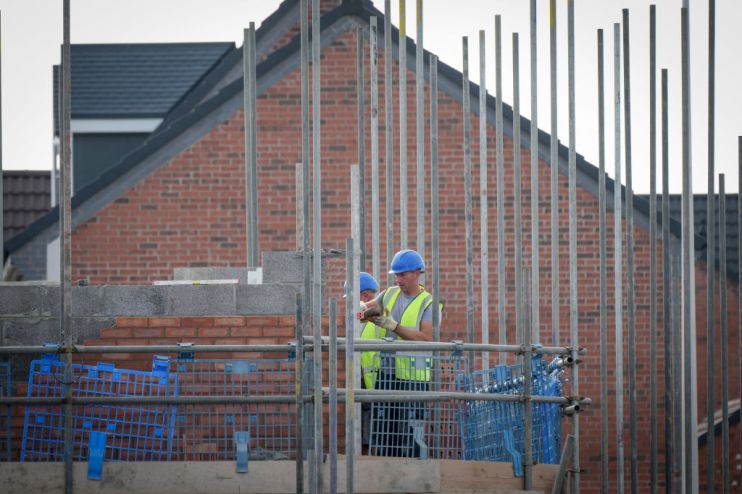UK housebuilding tumbles into ‘stagnation’ amid reversing economy

Higher raw material costs and ongoing supply chain disruption clamped down on the UK construction sector last month, according to a closely watched survey released today.
Construction businesses cut back on activity amid rapid cost inflation persisting in May making projects unviable.
Just over seven in 10 firms said input prices climbed in May, driven by higher fuel, energy and raw material costs, according to S&P Global’s final purchasing managers’ index (PMI).
Output in the sector eased to its weakest level since January, dropping to 56.4 in May from 58.2 in April. Investors had been expecting a reading of 56.6.
Despite cooling, the PMI is still high above the 50 point separating contraction from growth.
Strong demand for commercial work boosted output in the sector “despite a degree of hesitancy due to the uncertain economic outlook,” S&P Global said.
However, residential building activity hurtled into “stagnation” caused by dampening consumer confidence and expectations that the cost of living crisis will hit demand in the housing market, Tim Moore, economics director at S&P Global Market Intelligence, said.
Housebuilding activity plunged to its weakest level since May 2020, when the property market had just reopened after being shuttered due to Covid-19.
“New order volumes expanded at the slowest pace since the end of 2021, which added to signs that heightened economic uncertainty has started to impact client spending,” Moore added.
Higher mortgage rates caused by commercial lenders passing on the Bank of England’s four successive rate hikes is also clouding the demand outlook in the property market, strengthening incentives for housebuilders to ditch projects.
Construction businesses rushed to hover up supplies to avoid future price hikes and replenish inventories depleted by supply chains being scrambled, S&P Global said.
“Concerns about the business outlook were signalled by a fall in construction sector growth projections to the lowest for more than one-and-a-half years in May,” Moore said.